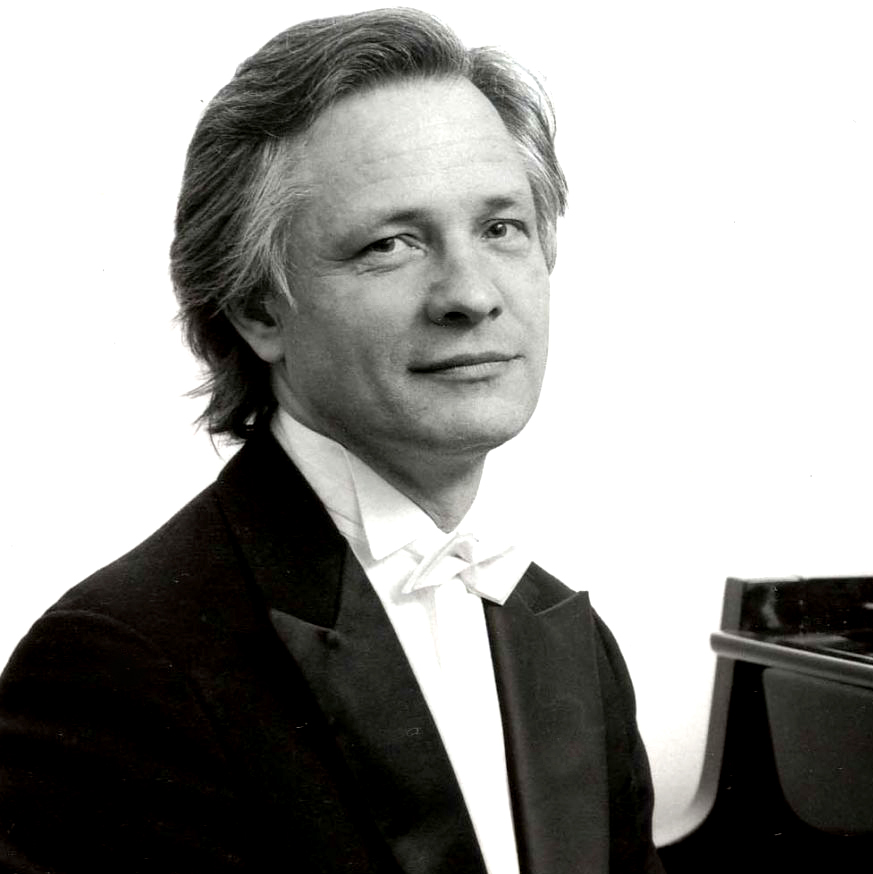Emotions Controlled
Exclusive CSA 2006 Interview with the pianist Marek Drewnowski
by Bożena U. Zaremba
Your collaboration with Leonard Bernstein had a great impact on your career. Let’s go back to how it all started.
While driving his car, Bernstein heard your recording of Twelve Sonatas by Scarlatti on the radio and decided to invite you to play with the Boston Philharmonic Orchestra at the Tanglewood Music Festival. This was unexpected, wasn’t it?
It was first of all a great shock. After I recorded Scarlatti’s sonatas, I left for Rome for a year. While I was there, martial law was imposed in Poland, and I stayed in Italy for next twelve years. I came back when things changed in Poland. Sometimes small steps determine your whole future. Suddenly, like in dominos, everything changes.
Was this a case with Bernstein?
The fact that Bernstein chose me by mere chance, not knowing me at all, proves his purely musical considerations. But in the real world, there are many factors, outside music, that determine your career. Bernstein really wanted to help me, but even he could not break the wall of the hermetic music world. I was even supposed to make a recording with Anne-Sophie Mutter, but by a turn of events it never happened. I shouldn’t be complaining, though, because I learned a lot, and this is the greatest treasure I gained. Everything I went through – all the stress and concerts – really shaped me as an artist. Since then, I started to control my music not only through intellect but emotions as well. Emotions that Bernstein had in him were very strong but, at the same time, very controlled. In the case of the greatest composers, emotions form the structure and play an equally important role as intellect. Take Beethoven’s symphonies: First there is peace, then the climax approaches, then the storm comes! Most musicians, especially conductors, lack those abilities to thrill – to make people cry, to make them shake with emotions. Bernstein had it all. This was a great lesson for me, and I am so fortunate to have experienced that.
They say that Leonard Bernstein was very temperamental.
Temperamental he was! We could go on forever on that subject. But let me tell you a different story. Imagine this: I get a phone from [Bernstein’s manager Harry J.] Kraut who tells me I will play Brahms’s Concerto No.1 with the Boston Symphony Orchestra. And I had never played it in public! When he asked me if I had, obviously I said yes, because I was afraid they would cancel. To go on stage with Bernstein and play the Concerto in D-minor by Brahms – for the first time in your life – is a tremendous pressure! And I endured! Some people may notice on the recording that I made a couple of mistakes here and there (and so did Bernstein), but there is so much emotional “load” on both sides that the listener cannot stay indifferent. This incredible passion verges on exhibitionism.
Many musicians would not accept such an emotional approach.
That's true. Most of them want to achieve musical effect through intellect and through the beauty of the phrase and sound. Even at the International Chopin Piano Competition [in Warsaw], everything is sterilized. Those who have emotions make mistakes and get eliminated. [Last year’s winner] Rafał Blechacz (though he is so talented and deserved to win) is a pure intellectual. But he is still young, and those emotions may show in the future, to his great advantage. Take [Vladimir] Horowitz: When you hear him play, you either get offended or faint from ecstasy! As far as my sense of esthetics is concerned, I like excitement. There is a lot of risk in my music.
Horowitz, among other pianists, recorded Scarlatti's sonatas before you. What impressed Bernstein in your interpretation?
I think it was the organization of time that is there.
Someone described it very accurately and said that you “breathe beautifully” when you play.
Because despite my emotions I am very classical.
The Festival in Tanglewood was not the only time you played with Bernstein.
No. We played together at a grand concert in Warsaw commemorating the fiftieth anniversary of the outbreak of World War II. It was broadcast around the world. I must say that Bernstein was very supportive of me till the last moments of his life.
You are known for unique music ventures. One of the most famous is the recording of Chopin's piano concertos in the chamber version.
I was the first pianist ever to record these versions, in 1992. The idea evolved during my studies on Chopin’s life. It turned out that when Chopin performed his concertos for the first time it was in the chamber version, with his teacher Józef Eisner present. I decided to find the manuscript but managed to get the chamber version of the Concerto E-minor only, published in 1833 in Leipzig by Friedrich Kistner. Musicologists unanimously agree that this is Chopin’s original version. I believe that Chopin wrote the chamber version first and “extended” it to the symphonic form. I arranged the Concerto F-minor myself, according to music tradition. I had great fun doing this. But the critics didn't like it. Even a scientific conference was held to prove these versions are unacceptable. But sometimes one stone makes an avalanche. Now the entire world plays these versions, and I am very proud of it. I still get requests for sheet music.
You have had interesting experience in movies. You wrote a screenplay about another famous Polish pianist, Ignacy Paderewski, did the soundtrack for The Fascination of Frederick and also played the role of Chopin in Krzysztof Zanussi’s Chopin’s Concert.
Usually it is a professional actor who plays a role of a musician (very often he cannot play the instrument himself) and a pianist does the soundtrack.
And I don’t like it! I don’t like when the actor pretends to play the piano. You can tell he knows nothing about it. When [Sviatoslav] Richter played the role of Liszt it was the greatest musical scene I have ever seen.
You live in an old restored palace in Dylew, 60 km from Warsaw. Why there?
After I returned from Italy, I was looking for places associated with old Poland. I found this dilapidated mansion, with no roof, water or electricity. And I rebuilt it.
Now it's not only your dwelling place.
It's true. I have been organizing classical music festivals there, focusing on the young generation of musicians.
You teach at the Music Academy in Łódź. Do you enjoy teaching?
Yes, but it is very hard work. Young people come to the Academy unprepared, with lots of mannerisms. If the child is not properly trained in the first two years it is really hard to change it later. I need three years to correct the mistakes. On the piano the sound is already there and the right sound comes from the right technique. In order to play properly, you need the right posture, and the whole body needs to be prepared so that playing comes naturally, just like walking. And you need to have the right technique to express yourself.
What about developing sensitivity and personality?
But of course! Everyone plays differently. But I don’t believe you can form a personality; you can only help it [develop].
Can you "open" someone?
You can and you should, though it requires a lot of mutual trust.
What are your current fascinations?
I am discovering another Polish composer, Tadeusz Majerski, who died forgotten in Lvov in the ’50s. It’s really amazing and fascinating that there are still so many superb things out there worth recognition and appreciation.
Żelazowa Wola, June 2006







